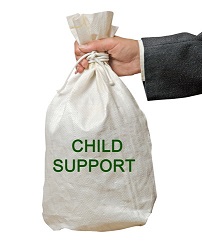
Once a child support order is entered, the obligor parent (i.e., parent obligation to pay) is required to make the regular payments. If the obligor fails to make the required payments, then the obligee parent (i.e., parent entitled to receive) can bring an enforcement action against the obligor. In order to ensure that the obligor makes his or her regular payments, the judge can order any enforcement mechanism listed in Rule 5:3-7(b), one of which is incarceration. However, the ability for a judge to order incarceration is limited in certain situations.
In 2006, the New Jersey Supreme Court decided Pasqua v. Council, ruling that, before incarcerating a parent who has failed to make child support payments, the court must find that the parent has the ability to pay the support and has willfully refused to do so. Pasqua also held that under the New Jersey and United States Constitutions, indigent parents have a right to an attorney if they are facing the threat of incarceration for failure to make child support payments.
According to the New Jersey Law Journal, recently, there have been a significant number of emergent appeals brought by parents to the New Jersey Appellate Division and the New Jersey Supreme Court arguing that the family court did not consider their ability to pay their support orders before incarcerating them.
Because of this increase in emergent appeals, the Administrative Office of the courts issued Directive No. 02-14, directing all family judges in the State of New Jersey to follow Pasqua and to make the necessary findings before ordering the incarceration of an indigent parent. Attached to the Directive was a “Revised Order for Relief to Litigant,” a form that family judges must complete to ensure that they made all of the required findings. Further, judges and their staff will be trained on this topic.
It is important to remember that parents are obligated to provide financial support for their children. Once a child support order is entered, obligor parents are bound by that order and must make regular payments in accordance with it. If it becomes difficult for a parent to make those payments, then that parent may seek a modification of the order to get a reduction in child support. If this is denied, or if the parent does not try to seek the reduction but does stop making full payments, then the court can order enforcement mechanisms, including incarceration. However, under Pasqua and the Directive, if the parent is indigent and the court is considering incarceration, the court must advise the parent that he or she has the right to an attorney and may not order incarceration unless it finds that the parent is able to pay the support and has willfully failed to do so.
If you have questions about your child support order, please contact the experienced attorneys at Sarno da Costa D’Aniello Maceri LLC at 973-274-5200.


